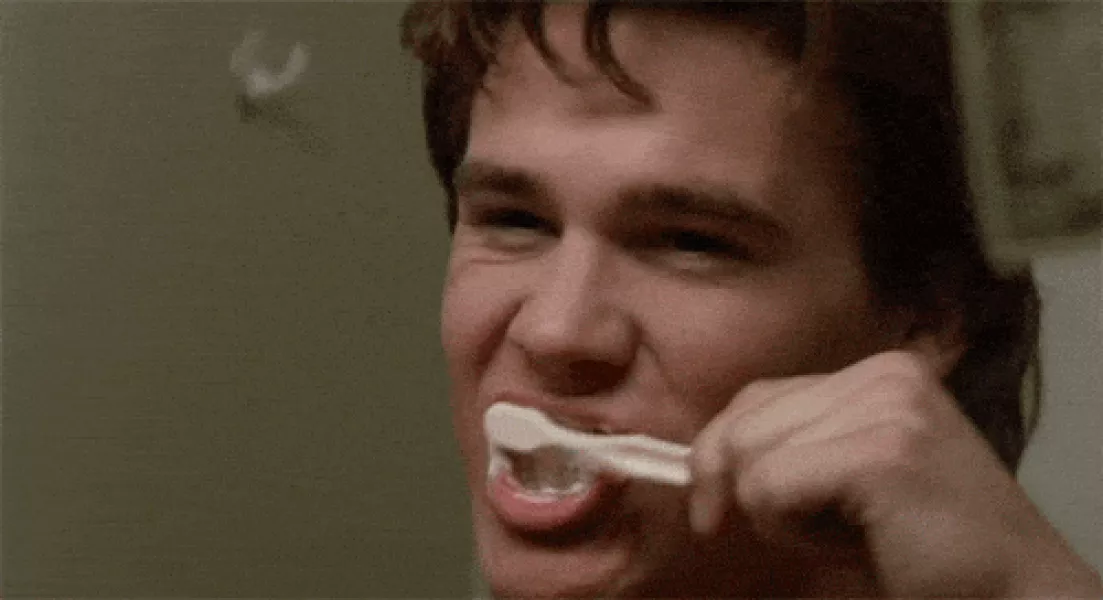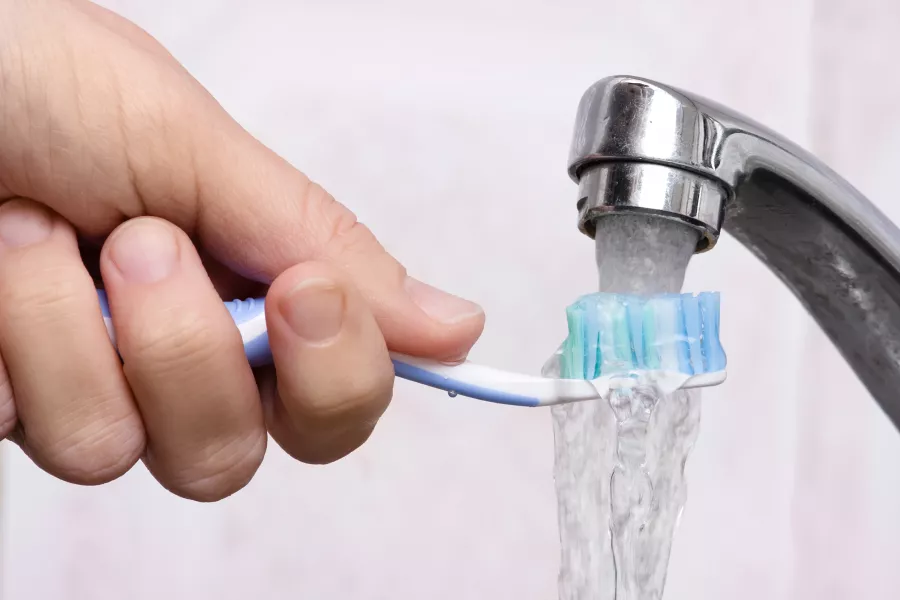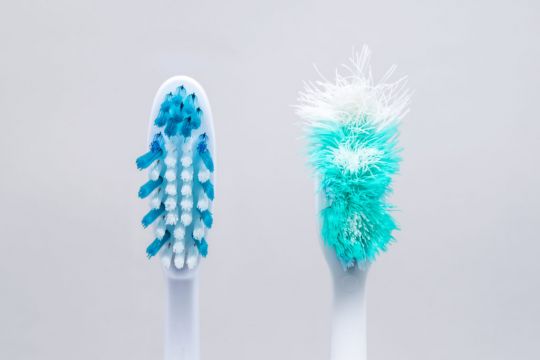Like holding onto smelly running trainers and underwear that’s way past its best, we’re probably all guilty of using the same toothbrush for a bit too long.
But when you think about how easily toothpaste residue can build up, the idea of putting the same piece of plastic or bamboo into your mouth over a full year becomes a pretty stomach turning thought.
So how often should you actually switch things up? We asked an orthodontist in the UK Dr. Chaw-Su Kyi to explain.

Toothbrushes can quickly get grimy with old toothpaste. Do we need to clean them – and if so, how often?
“As a rule of thumb, you should always clean your toothbrush after using it. This is as easy as running the brush under water to remove any residual toothpaste or any particles of food which may be left on the bristles.
“I advise leaving the brush standing to air dry naturally afterwards – don’t cover your wet brush with a holder as this is how germs can potentially harbour.”
What’s the best way to clean a toothbrush?
“The best thing is to simply rinse it straight away with running water, after using it. However, you can also give it a deeper clean every few weeks by swirling the toothbrush head in a cup of mouthwash, for around 30 seconds.

“For a DIY cleaner, you could also try using denture tablets dropped in water. They are traditionally used to disinfect dentures which have a plastic component, and can be safely used on toothbrushes. Make sure you’re always following the instructions though.”
How often should I replace my toothbrush or toothbrush head?
“Ideally every three months, or sooner if the bristles are fraying considerably. As a general hygiene rule, look at changing your toothbrush around four times a year.”

Can neglecting to change my toothbrush make me sick?
“Germs and micro-organisms can harbour on your toothbrush if it’s not cleaned, but there’s no clear cut evidence that it will make you unwell.
“However, I think it’s all part of having a clean hygiene routine. You wouldn’t consider wearing the same dirty clothes every day for a year, so there’s no reason to not rinse your brush with water after using it, or to forget replacing it every three months.”







